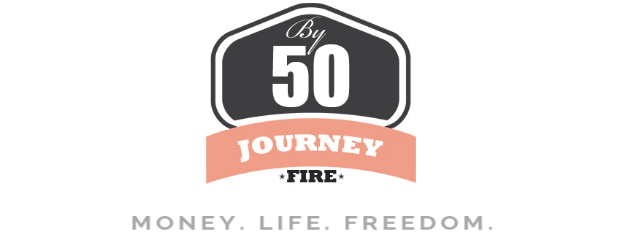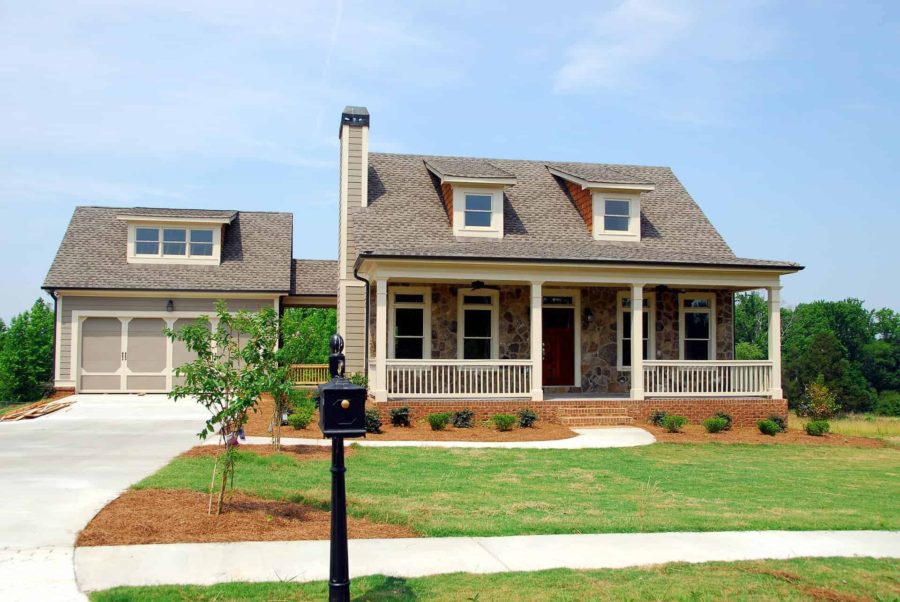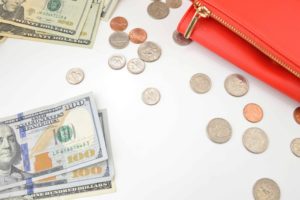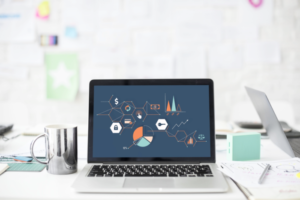How To Tell If You Are House Poor
Have you ever wondered if you may have bought too much house after you moved in and settled? How to tell if you are house poor. I am going to discuss what it means to be house poor and ways to avoid becoming one.
We bought a new house last year. It was way bigger and more expensive than our last 2 houses combined. Did we make the right decision? Are we at risk of becoming house poor? My sister’s family will come and live with us when they move to the U.S. in the near future. Even that excuse, did we still buy too much house?
I’m not quite sure. Let’s analyze those questions and discuss them in details to see if we are house poor or not.
What is “house poor”?
 Investopedia defines house poor as a situation that describes a person who spends a large proportion of his or her total income on homeownership, including mortgage payments, property taxes, maintenance, and utilities.
Investopedia defines house poor as a situation that describes a person who spends a large proportion of his or her total income on homeownership, including mortgage payments, property taxes, maintenance, and utilities.
Mortgage lenders use the debt-to-income ratio (DTI) or the 28/36 rule to determine how much money they can lend you to buy a house. Generally, DTIs are used to help them determine how much mortgage you can take out based on that rule and your down payment. Monthly mortgage payment should not be more than 28% of your gross monthly income, and all debt no more than 36%. That being said, if you buy at the top of your price range or at the top of your pre-approved amount, you could be putting yourself at risk of becoming house poor.
To me, house poor is a situation where someone who has bought a house they can’t really afford. Besides the mortgage payment, they didn’t take the cost of general home maintenance costs, repairs, utilities, or even household goods like furniture and such into their financial consideration when they bought a house. Another word, if you’re having a hard time making your mortgage payments, cannot keep up with major repairs, or basic home maintenance then you’re house poor.
How much house can I afford?
If you’re not buying your house with cash, you’ll probably need to take out a mortgage loan from a lender. The amount you can borrow is limited by the 28/36 rule and the amount of your down payment. The interest rate you’ll pay will be based on your credit score and your down payment. A 15-year conventional mortgage (vs. 30-year) and a down payment of 20% or more will get you the best interest rate. You also don’t need to get private mortgage insurance (PMI) if you make a down payment of 20% or more.
Generally, the 28/36 rule is a way for lenders to compare how much money you can borrow. Let me explain that in details. The 28% housing cost is calculated by adding the monthly principal & interest of your mortgage payment and monthly costs associated with house payments (property taxes, homeowner’s insurance, PMI if any, and homeowner’s association fee; HOA if any). The 36% debt is calculated by adding all the debt you owe (all financial obligations such as monthly payments of student loan, car payment, personal loan, alimony and/or child support, and credit card) and the monthly mortgage payment that you’re going to take out.
Then, lenders figure out a mortgage amount from that 28% and 36% numbers. Basically, they don’t want borrowers to have a DTI above 36%.
If you make $3,000 a month, gross monthly income, you can’t spend more than $1,080 on monthly debt payments and housing-related costs (mortgage, property taxes, PMI if any, and HOA if any).
With $1,080 a month, you approximately could afford a house up to $142,681. This is based on a down payment of 20% ($28,536), a fixed 30-year mortgage with interest rate of 4%, an annual property tax of $2,140, an annual homeowner’s insurance of $1,427, and an annual home maintenance cost of $2,854. You get the idea.

How much does it cost to own a house?
The cost of owning a house is more than having enough monthly mortgage payment. Many people I know overlook the hidden cost of homeownership related expenses such as general home maintenance, lawn maintenance, home & appliance repairs, and higher utility bills. As a homeowner, there’re no landlord or property manager you can call. You’re in full responsibility for these costs. If you don’t have the financial ability to keep up with these costs, you may find yourself in a situation where you can’t spend your income the way you want.
So, now you know what house poor means. And here are questions to ask yourself before buying your dream home to avoid becoming house poor.
How to avoid becoming house poor
1. Make a 20% down payment
Most experts recommend putting down 20% or more. The main reason is that if you can make a 20% down, you can avoid paying PMI. Your monthly mortgage payment will be lower too. And a larger part of your payment goes to the principal.
A 20% down payment is a lot of money for most people. Say, if you’re buying a $200,000 home, that means you’ll need $40,000 of cash. There are other expenses that you’ll need to cover a home purchase like a home inspection fee, a property survey fee, utility connection fees, etc. That being said, if you have enough for a 20% down, it doesn’t necessarily means you’re covered.
However, you have a 20% down payment or even more, it doesn’t mean you can buy the most expensive house you’re qualified for. This rule doesn’t take your income into account, only saving. For example, you have $80,000 saved, but if you make $35,000 a year, buying a $300,000 home probably isn’t a good idea.
We didn’t make a 20% down payment when we bought our new home last Spring. 🙁 The fact that we have chickens and this complicates the process a little bit. We had a hard time finding a house that worked for us. It wasn’t easy for us to find a farmhouse within our price range or a non-farmhouse house that allows chickens. Most houses in the area that we want to live in are in a subdivision with HOA/covenants or a million+ dollar farmhouses that come with 100+ acres. We then found this house (perfect location, within our price range, and chickens friendly) and thought we should move forward right away (we actually planned to buy a new house in the Fall).
2. Have enough cash to cover closing costs
Another big chunk of cash you need to buy a house is closing costs. Typically, it runs around 1-5% of your home purchase price depending on the mortgage type, loan amount, and area of the country.
The most common closing fees are lender fee, discount/point fee, underwriting fee, credit report, title insurance, appraisal, recording fee, the first year of homeowner’s insurance premium, property tax reserves, the first month mortgage, etc. To get a better estimate, request your lender to run a closing cost analysis for you and ask for an itemized closing cost sheet. They are happy to do so.
We didn’t have enough cash for closing costs. However, since we were not in a hurry of buying a new house, we negotiated with the seller to pay a certain amount of closing costs. If they said no, we were just going to move on with our plan (to buy in the Fall when we’d saved enough cash to cover a 20% down payment and closing costs). We were not stressed out over this transaction. So the advantage was in our favor. 🙂 It turned out that the seller needed to sell this house quickly so they agreed to pay up to 90% of the total closing costs.
3. Have a 3-6 month’s worth of living expenses in savings
It’s so important to have an emergency fund. You need a safety net to weather storms when rainy days come. Many new homebuyers don’t plan for unexpected life events. Experts say there’re chances that you’d have at least a negatively life-changing event in a 10-year period. You should have a reserve of cash that is large enough to cover at least 3-6 months’ worth of living expenses. Without an emergency fund, there’s a bigger risk that you won’t be able to pay your monthly mortgage payment if a financial emergency arises.
We have enough cash reserve to cover 3 months’ worth of living expenses in case rainy days come. It makes me feel better financially if we have enough to cover 6 months worth of living expenses (we are working on that). On average, a person takes about 6 months to find a job. So that makes more sense to have at least 6 months’ worth of living expenses. Some experts even say a year’s worth of living expenses is recommended if you have kids, an unstable job, and are a single income family.
4. Meet the 2.5 times your income rule
As a general guideline, you should not buy a house that is more than 2.5 times your annual gross income. Say if your total household income is $75,000 a year, that would mean you should not buy a house that costs more than $187,500. Basically, this guideline is focused on your cash flow. It ensures that you’ll have enough income to cover all the housing-related expenses and live comfortably.
Yes, we meet this guideline. However, when I think about our net worth, it looks like a large portion of our net worth may end up in home equity. If you’re nearing retirement or want to be financially independent like us, and you don’t have much savings or net worth, it’s probably better financially to focus on that. Personally, I want to pay our mortgage off as soon as possible. After a thorough consideration, we decided to commit ourselves to pay our home off in 9 years.
5. Home-related expenses must be below 36% of your monthly gross income
A general rule of thumb, housing-related costs should not be more than 36% of your gross monthly income. This rule is used to determine how much house you can afford by lenders. Keep in mind that housing costs go beyond a monthly mortgage payment.
Using our numbers last year, we didn’t make the cut. However, we were paying 2 mortgages and a significant amount of unexpected home repairs. To be fair, I recalculated our expenses based on our current home with this year’s income & expenses. We meet this guideline. 🙂
6. Home-related expenses should be below 30% of your monthly gross income if you have other financial obligations
Experts say we should not spend more than 30% of our gross income on housing-related expenses. Remember, housing-related expenses are beyond a monthly mortgage payment. Besides the mortgage payment, and HOA (if any), you need to take other hidden costs such as home maintenance, home & appliance repairs, utilities, etc., into your calculation. What about other financial obligations like child support and/or alimony or college expenses for your kids?
We meet this guideline. Remember, if you buy at the top of your price range, you could be putting yourself at risk of becoming house poor. We didn’t buy our home at the top of our price range/what we were pre-approved for. Most lenders and/or realtors tend to make you buy the most expensive house you could afford. Don’t fall into this trap!
7. Your monthly mortgage payment must be below 25% of your take-home pay
You may have heard of this rule of thumb that you should not buy a house that a monthly mortgage is more than 25% of your take-home pay. Generally, the monthly mortgage payment includes principal, interest, property taxes, and homeowner’s insurance. If most of your take-home pay goes toward your monthly mortgage payment, you may be at risk of becoming house poor. Worse than that, you may find yourself not able to pay your mortgage if a financial crisis arises.
This rule ensures you can live comfortably and have enough cash flow to cover other important living expenses like groceries, debt payoff, vacation, savings, and retirement.
Our monthly mortgage payment is below 25% of our take-home pay. We add extra principal to our monthly mortgage each month. A good guideline when you are considering buying a house is to ask your lender to determine the maximum mortgage amount you could be qualified for based on your 25% monthly take-home pay, your down payment, and your credit score.
8. Are you going to find yourself scraping every penny to make a monthly mortgage payment?
Even though your monthly mortgage payment agrees with the 25% rule but if you have other debt obligations like medical bills or your kids’ college costs, you may have a difficult time making your mortgage payment. If you often find yourself stretched so thin financially, you may be house poor.
Do your math before committing yourself to homeownership. Again, these are ballpark rules, everyone has different life situations. While these rules can help you determine the ability to become a homeowner and reduce your risk of becoming house poor, do your own math and consider all of your financial life situations.
9. Your investing should be on track for retirement
You don’t want to own a home just to learn later that you don’t have enough money to save for your retirement. Housing costs shouldn’t take up most of your income. How will your cost of homeownership affect your ability to save for retirement? The last thing you want to do is closing your dream home only to be house poor and put your retirement in jeopardy.
We max out our employer-sponsored retirement plans and invest outside of work. Based on our current savings rate and living expenses, we are on track for traditional retirement. If we want to retire early, say in 10 years, we need to increase our savings rate and pay off our mortgage quickly.
10. Homeownership should fit in with your other financial goals
Consider other your financial goals, does homeownership fit in? Many people stretch their finances to buy a house only to find themselves house poor later. This means that you have the house but you can’t afford other financial goals like saving for your kids’ college or even your own retirement. Consider the long-term cost of owning a home is very important while many people forget to do so.
Owning a home probably is the most expensive thing you’ll ever buy. Even you’ve finished paying off the mortgage, you still need to pay for property taxes, homeowner’s insurance, or HOA not to mention housing-related expenses for as long as you own that house.
While we don’t like paying the monthly mortgage payment, we love being a homeowner. It’s a place we can grow our own food and do whatever we want to do. We have control over our living arrangements. Homeownership does take away a lot of our income but we make sure that every financial decision we make coincides with our financial goal.
Based on the above questions, let’s see if we are house poor

We could have made a 20% down and have had enough cash for the closing costs if we waited longer to buy our new house. 🙁 My husband and I think that we made the right decision to buy then rather than to wait. Since then, I’ve been watching the housing market in our area, houses have increased in value so rapidly. Not to mention that the Federal Reserve had increased the interest rate twice. Most importantly, I haven’t been able to see any house that could work for us.
I believe based on these benchmarks we are not house poor. But my financial feelings are telling me that our road to financial independence (FI) will take longer because of the new mortgage. However, it’s good to realize early on that the mortgage is our big obstacle to achieve FI. The next step for us is to get rid of PMI and eventually to get rid of the mortgage.
By these benchmarks, do you think we are house poor? I’d love to hear your take on this.
Are you house poor? What would you do or change if you are?
Any other housing-related guidelines you could share?










